
Sustainability from the Beginning
The idea that statistics can address urgent sustainability concerns at the lab bench was central to presentations at the recent JMP Discovery Summit Europe in Manchester, UK.

The idea that statistics can address urgent sustainability concerns at the lab bench was central to presentations at the recent JMP Discovery Summit Europe in Manchester, UK.

mRNA-based vaccines against the coronavirus have become firmly established in medicine since the pandemic. Nevertheless, the technology is still at the beginning of its potential. Experts see a wide range of potential applications for this relatively new technology, particularly in infectious diseases and cancer.

US vaccine maker Moderna and German biotechnology company Immatics agreed on a broad multi-platform research and development collaboration for novel cancer therapies, combining Immatics’ TCR platform with Moderna’s mRNA technology. The project spans various therapeutic modalities including bispecifics, cell therapy and cancer vaccines.

After building up manufacturing footholds outside the US, including in Australia, Kenya, South Korea, Canada and the UK, vaccine specialist Moderna is planning to build a new plant closer to its home base in Cambridge, Massachusetts.

Plans by US healthcare company Baxter International to shed its biopharma contract business as it streamlines operations after a poor 2022 earnings performance are gradually taking concrete shape.

Examples of national logistics solutions in the UK, the Netherlands and Belgium show how high availability and low costs can be brought down to a common denominator.

US vaccine maker Moderna has chosen the Harwell Science Campus in Oxfordshire, England, as the location for its planned UK Innovation and Technology Center which is expected to be in operation by 2025.

Johnson & Johnson’s pharmaceuticals subsidiary Janssen is walking away from plans to launch an HIV vaccine in the immediate future after the data safety monitoring board for its latest Phase 3 trial found that the shot was no better than a placebo.

In its first acquisition since forming in 2010, mRNA specialist Moderna is buying Japan’s OriCiro Genomics for $85 million, expanding its therapeutics and vaccines portfolio.

Faced with a lawsuit from US rival Moderna, alleging that Pfizer and its German partner BioNTech infringed one of its patent for their top-selling Covid-19 vaccine Comirnaty, the New York US drugs giant said in a court filing that Comirnaty was based on independent research and wasn’t a Moderna copy.

The newly launched bivalent mRNA-based Covid-19 booster shots from Moderna and Pfizer/BioNTech did not show a major improvement over the companies’ first-generation vaccines targeting the original strain, a small US study conducted by Columbia University and the University of Michigan has found. Detailed data have not yet been released.

US drugmaker Merck & Co is going ahead with plans to develop a therapeutic cancer vaccine called mRNA-4157 together with Covid vaccine maker Moderna. This fulfills an agreement first signed in 2016 and amended in 2018.
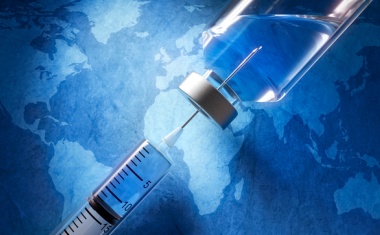
As had been widely expected, the US Food and Drug Administration (FDA) on Aug. 31 granted emergency use authorizations (EUAs) to the new Covid-19 shots developed by mRNA vaccine makers Pfizer-BioNTech and Moderna.

BioNTech and Pfizer are facing another lawsuit claiming that their Comirnaty-branded Covid-19 vaccine infringes another company’s patent. The latest to sue is US rival Moderna, which claims the German-American duo copied the original mRNA technology it used for its first-generation shot Spikevax.
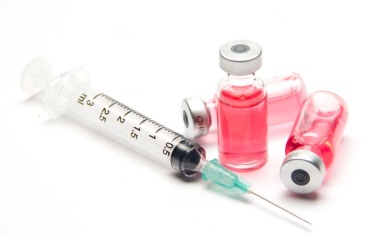
Sanofi and GSK are touting their latecomer protein-based Covid-19 vaccine as a potential game changer in the fight against the Omicron variant.

Somewhat later than expected, the US may soon be able to offer Covid-19 vaccinations for children five years of age and younger, something parents have repeatedly demanded. And there may be two companies’ mRNA-based shots to choose from.

An updated version of Moderna’s Covid-19 vaccine is claimed to produce a stronger immune response against major variants of the coronavirus, including omicron and delta, compared to the shot currently administered.
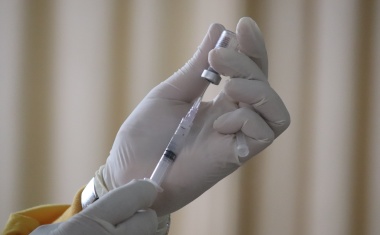
The US Food and Drug Administration has scheduled a virtual meeting of its scientific advisory panel for Apr. 6 to discuss the prospect of future Covid-19 boosters and the process for updating existing vaccines. The US Centers for Disease Control and Prevention (CDC) and the National Institutes of Health (NIH) will participate.

Moderna has announced it will begin conducting human trials for vaccines against 15 threatening viruses and other pathogens by 2025 as part of a global public health strategy that would allow it, as well as others through licenses, to quickly respond to a future pandemic.

US biotech Moderna has announced plans to expand in Europe and Asia. The expansions come as the company continues to scale up manufacturing and distribution of its Covid-19 vaccine, while also advancing other mRNA vaccine candidates and therapeutics.

February kicked off with a major publicity coup for US vaccine maker Novavax, based in the state of Maryland. Its Covid-19 vaccine was granted conditional marketing authorization in the UK, Germany’s vaccine advisory panel recommended its use and the company officially filed with the FDA for emergency use authorization.

Between the Christmas and the New Year’s bells and on both sides, the international pharmaceutical and healthcare sector continued battling the coronavirus pandemic. In one of the most watched developments – most of which took place in the US – Novavax finally fulfilled its pledge to file final data to the US Food and Drug Administration (FDA) for Emergency Use Authorization of its protein-based Covid-19 vaccine during the year’s fourth quarter.

With the fast rolling wave of yet another Coronavirus variant sparking global concern, vaccine mandates, booster shots and efficacy studies are dominating headlines in the run-up to the year’s end, sidelining chemical companies’ news of progress toward net zero emissions two or three decades down the road. Worries are increasing that millions of people not only have not yet been vaccinated or that some of the vaccines are not protective enough.

Days before news of the omicron-dubbed latest coronavirus mutant emerged, the administration of US president Joe Biden called on the courts to remove a stay on the implementation of its plans to mandate Covid-19 vaccines mandatory for employees of all companies employing more than 100 people by Jan. 4, 2022 or require them to undergo weekly testing.

An unusually acrimonious dispute has arisen over patents – in particular for Covid-19 vaccines – in the US. The row between vaccine maker Moderna and its mentor, the US National Institutes of Health (NIH,) centers on the fundamental question of who owns the rights to patent a pharmaceutical product developed by a private company receiving state funds.

In a decision not everyone anticipated, the EU’s drugs regulator, European Medicines Agency, EMA, announced on Oct. 4 it was authorizing a booster shot of the Pfizer/BioNTech and Moderna Covid-19 vaccines for healthy adults, to be given at least six months after the second dose.

The question of what kind of particulate matter found its way into vials of Moderna’s Covid-19 vaccine deployed in Japan may have been resolved. There is as yet indication that contaminated doses may have caused the deaths of two men who had received the US biotech’s shot days earlier.

Two people died in Japan within three days after receiving their second doses of Moderna’s Covid-19 vaccine, the country's Ministry of Health, Labor and Welfare reported on Aug. 28. The ministry and Moderna’s Japanese distributor, Takeda, stressed that a causal link between the vaccine and the deaths has not been established.
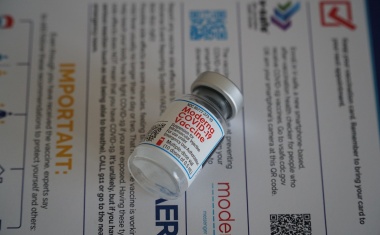
US biotech Moderna announced on Aug. 26 that it had completed its filing with the US Food and Drug Administration (FDA) for full marketing approval of its mRNA-based Covid-19 vaccine for people age 18 and older. The company said it has requested a priority review as was granted the Pfizer-BioNTech shot, also mRNA based.

The US Food and Drug Administration (FDA) added information about myocarditis and pericarditis to its fact sheets for the mRNA-based Moderna and Pfizer/BioNTech Covid-19 vaccines on Jun. 25.

Flagship Pioneering, the venture capital fund behind US Covid vaccine manufacturer Moderna and other biotechs, said it has raised an additional $2.23 billion for its fund no. 7 launched in April 2020, bringing the total value to $3.37 billion. Simultaneously, Flagship has announced the appointment of former US Food and Drug Administration (FDA) commissioner Stephen Hahn to its management team as chief medical officer.

As it ramps up production on three continents, US Covid-19 vaccine manufacturer Moderna is expanding its collaborations with CDMO suppliers in Europe, the US and Asia. At the beginning of June, the US biotech announced new supply agreements with Lonza and Thermo-Fisher. In late May, it inked new deals with Aldevron and Samsung Biologics in Asia to handle various stages of the mRNA shot’s production.

After German Covid-19 vaccine maufacturer BioNTech announced earlier this week that it plans to expand into Asia with a new plant in Singapore, news has emerged that US rival Moderna will set up a production base in South Korea. The company has not yet confirmed a story by the Korea Times that quotes Korean government officials as sources.
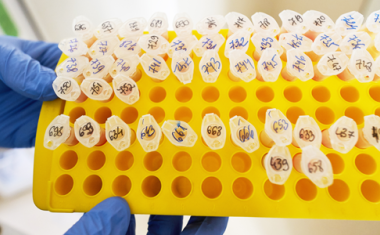
The long simmering discussion over whether manufacturers of Covid-19 vaccines should waive their intellectual property (IP) rights in hope of giving more people access to a shot and whether this would indeed end the pandemic faster reached the boiling point on May 5 when the US unexpectedly joined a group of developing nations pushing for such a move.

US Covid-19 vaccine manufacturer Moderna said it is planning to make major renovations at its Norwood, Massachusetts, mRNA production site with the aim of more than doubling its size by late 2021 or early 2022. The plans call for transforming the facility from a production and lab space to an industrial technology center by acquiring another building located on the same campus.